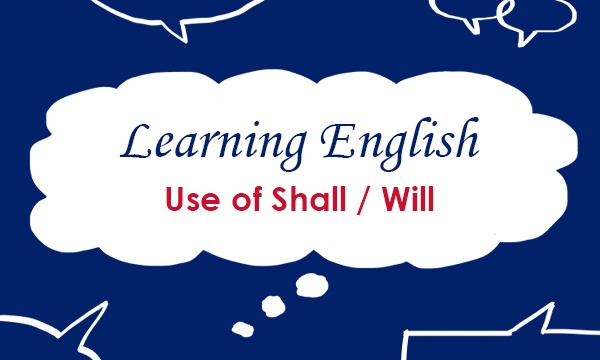
The normal way to express simple future time in English is using the modal verb will followed by the base form of a main verb. The modal verb shall can be used with the pronouns I and we, especially in questions, but is not used very much in modern English.
Shall I bring you some tea?
Shall we bring the kids?
Will is used:
- with I and we to show intentions and to make promises.
We will be in touch.
I will try to ensure that you get a good room.
- with you, he, she, it, and they, to give reassurances.
He will be well treated.
You will have your money next week.
- to insist on something. Full forms are normally used and are stressed in speech.
You will do what I tell you!
Jane will go to Mary’s even if I have to carry her there.
- to make polite requests and to give invitations.
Will you help me look for my purse?
Will you come to lunch on Friday?
- to give orders.
You will finish your work before you watch TV, won’t you?
Louisa, will you please be quiet!
- to show that someone persists in doing something. Full forms are normally used and are stressed in speech.
Oh! Tony will keep jogging me when I’m trying to write!
No wonder you feel sick. You will eat chocolate all day long.
- to show prediction.
The match will be finished by now.
I think it will probably rain tomorrow.
The contracted form of will and shall is ‘ll.
He’ll be home soon.
The contracted negative form of will is won’t and of shall is shan’t.
Eve won’t speak to Harriet.
Don’t worry. I won’t be late.
I shan’t say a word.
For further information on English Grammar, visit: https://grammar.collinsdictionary.com/easy-learning
Come back for other blogs on using English in everyday situations: https://blog.collinsdictionary.com/language-learners/learning-english
All opinions expressed on this blog are those of the individual writers, and do not necessarily reflect the opinions or policies of Collins, or its parent company, HarperCollins.



